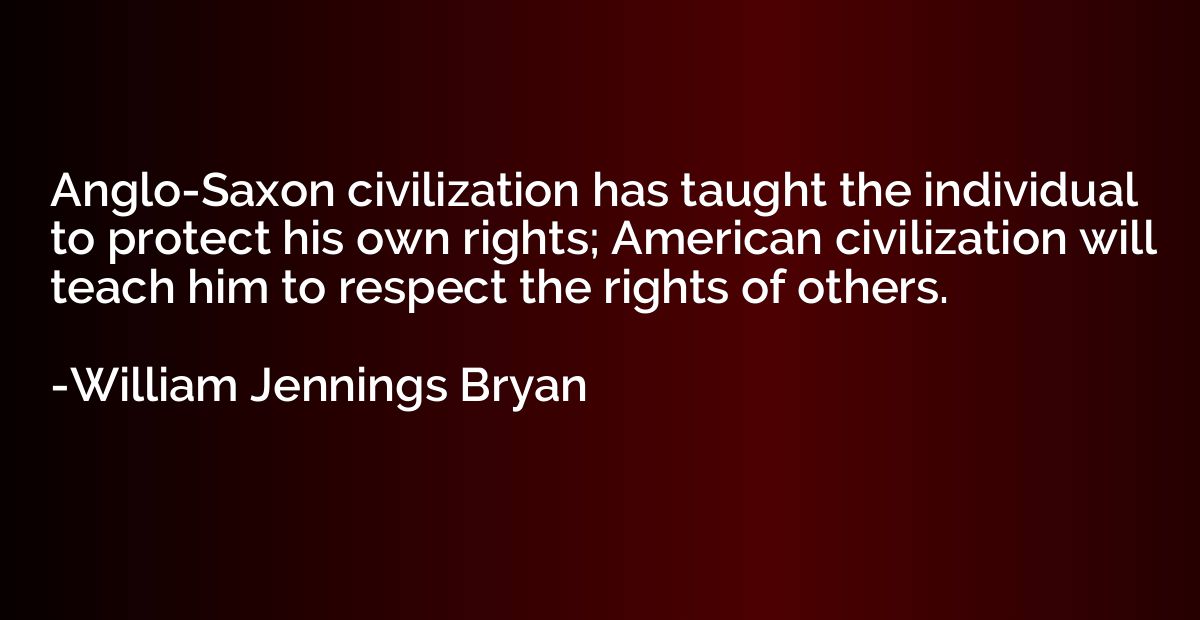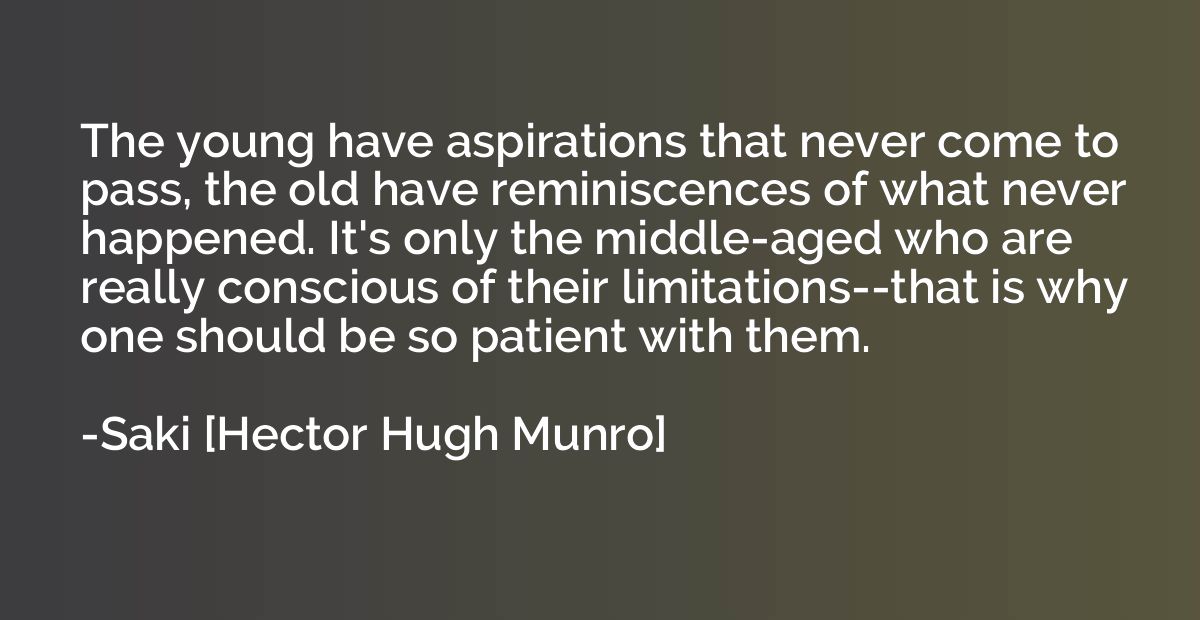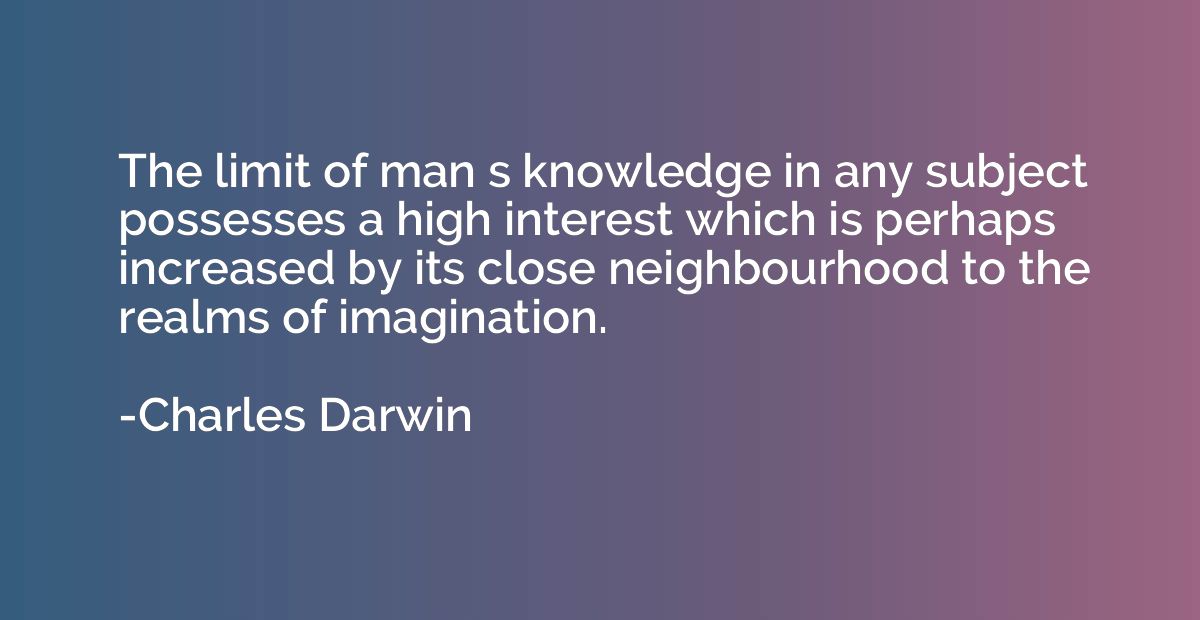Quote by William Jennings Bryan
Anglo-Saxon civilization has taught the individual to protect his own rights; American civilization will teach him to respect the rights of others.

Summary
This quote suggests that while Anglo-Saxon civilization has focused on promoting individual rights and freedoms, American civilization emphasizes the importance of not only protecting one's own rights but also respecting the rights of others. It implies that American society encourages a greater sense of empathy, tolerance, and consideration for the well-being and rights of the broader community. In essence, it expects individuals to not only advocate for their own interests but to also recognize and uphold the rights and dignity of others.














